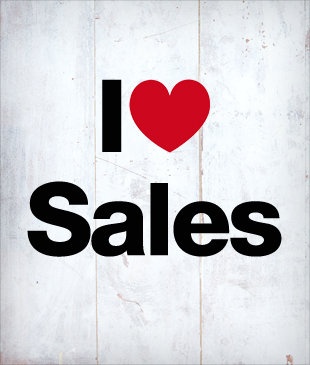I am thinking of writing a series on technology sales, given that selling is my first functional love and I enjoy it more than anything else. (There, I admit it, and yes, more than development even though I am an “engineer” by education). So the next few posts will be focused exclusively on selling for entrepreneurs.
Yesterday I had a friend who came over to get some advice on his startup. 6 years into the business he’d built a $200K+ annual consulting company and had over 30 customers for whom he’d implemented various projects. The average sale was about $20K and since the company was fairly small, (15 people) the CEO and founder was the primary sales person.
Most of their lead generation was relegated to speaking at important conferences and events, after which they’d get a few interested people who were keen to leverage their expertise for implementing a project.
His question was around a proposal he got from another company, which was founded by a big-company sales person who’d built a good network of customers and prospects. The company was offering to help my friend outsource his sales and generate customers. In exchange they were asking for 30% (starting point) of the sale as their commission.
To my friend this seemed on the high side. He’d heard numbers like 10% or even 15%, but 30% seemed large.
So his question was “Is this the right number? Or should I negotiate a lower commission”?
We had an hour to chat about it. I was most surprised he never asked me the question “Should I outsource my sales”? Since I have been running the Microsoft accelerator for the last few months, I have refrained from answering questions I think entrepreneurs should ask, instead narrowly focusing on their specific question and giving them options they should consider or a framework they should look, at to evaluate their options.
Lets do some simple math, I told him. If you are looking to make $200K a year from a sales person, given that your ASP (Average selling price) is about $20K, you will need 10 (roughly) deals for them to make their quota. Since the projects they were selling were fairly complex in nature, the sales person they needed to hire would have to be someone who understood both the customer’s industry, the value of technology to that industry and build good relationships within that industry. So, a fresh out of school grad going for $10K – $15K (in India thats what they make annually) wont cut it.
He needed to hire someone who was a consultative sales person who could not only do the lead generation and selling but also some amount of initial “scoping” of the project. In India most of these people make about $40K annually. These folks would have about 8-10 years of experience (or more) and would have implemented several projects or performed the role of “solution architect”, at their previous role. About 60% of the annual pay of the sales person would be paid as base salary and 40% of it as commission on sale.
Since most of my friend’s customers were in India and primarily in the south, customer travel was going to be fairly minimal, which would cost about $2.5K annually at the high end. Assuming that 50% of his customers were outside the city he lived in and the average customer took 2 trips to close and some trips required 2 people (including my friend who would also help with the sales), the cost of travel was about $2.5K we determined.
To generate leads in a consistent manner, the sales person would have to supplement the speaking engagements my friend was using for lead generation with some events, and a few other techniques, which we estimated would cost another $2.5K.
So in total to generate $200K in business, my friend would have to spend about $45K in hiring, managing and helping his sales person.
Now these numbers are unique to India, but the model holds for the US as well. You might have to multiply each number by 5 to get to the US equivalent, but that’s the norm. Approximately 22.5% of his target or sales was going towards the sales person.
Realistically, the outsourced sales person asking for 30% seemed fairly reasonable.
Of course, I warned that my friend would still have to be deeply involved in the process so the “transparent costs” of the sale would increase the paid commission.
There are a few numbers that can change this equation dramatically. One is the average selling price, second the annual salary the sales person makes and third the target (quota), but by and large this is in the ballpark.


